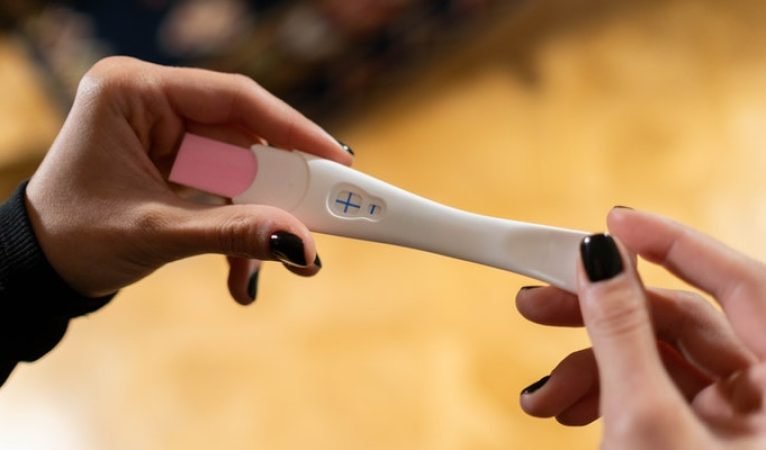Pregnancy Test

A pregnancy test attempts to determine whether a woman is pregnant or not, and indicative signs are found in the blood and urine, and pregnancy tests require taking samples of these materials. Home pregnancy tests are very accurate and usually give you adequate results if you follow their instructions. However, you should have your blood or urine tested to confirm if you think you got a positive or negative result. Here in the How To blog we will tell you all about home pregnancy tests and more.
- pregnancy tests:
- Pregnancy blood test:
- There are two types of blood screening tests:
- What do pregnancy test results mean?
- What type of pregnancy test is best?
- What causes a false negative pregnancy test?
pregnancy tests
HCG detected on the first day of the missed period. Home pregnancy tests are private and convenient. These tests come with instructions to follow to get more accurate results. After the test, you can confirm the results by seeing your doctor, who can perform more sensitive pregnancy tests. The results may also be more accurate if you take the test first thing in the morning, when your urine is most concentrated.
A home pregnancy test can be used on the first day of a missed period. A home urine test is approximately 99% accurate. But blood tests are more accurate.
Pregnancy blood test
Blood tests are done in a doctor’s office, but they are used less frequently than urine tests. These tests can detect pregnancy earlier than a home pregnancy test, about 6 to 8 days after ovulation. But with these tests, it takes longer to get more accurate results than with a home pregnancy test.
There are two types of blood screening tests:
- Qualitative HCG blood test
- Quantitative HCG blood test
This test measures the specific level of hCG in the blood.
Qualitative HCG test:
It simply checks to see if hCG is present. Gives a “yes” or “no” answer. Doctors often order these tests to confirm pregnancy as early as 10 days after ovulation.
Quantitative HCG test:
A quantitative hCG test measures the exact amount of hCG in your blood. Because these pregnancy tests can measure the concentration of hCG , they can track any problem during pregnancy. It is also used with other tests to avoid an ectopic pregnancy and also to monitor a woman after a miscarriage because hCG levels drop.
How accurate a home pregnancy test is depends on:
- How well you follow the instructions.
- When will the ovulation process take place?
- How long after pregnancy to take the test.
- Sensitivity pregnancy test.
You can buy a home pregnancy test at a pharmacy without a prescription. The cost depends on the brand. But most tests are relatively inexpensive.
Home pregnancy tests are quick and easy to use. It is also very accurate if you follow the directions carefully. All of these pregnancy tests work in a similar way.
What do pregnancy test results mean?
It is important to know the positive or negative result.
If you get a positive result, you are pregnant. This is true no matter how faint the line, color, or mark is. If you get a positive result, you may want to call your doctor to talk about what happens next.
In extremely rare cases, you can get a false positive result. This means you are not pregnant but the test says you are pregnant. The result can be a false positive if blood or protein is in the urine. And some medications, such as sedatives, hypnotics, and some fertility drugs, may also cause false positive results.
The urine pregnancy test may be wrong in these cases:
- The test has expired.
- I took the test the wrong way.
- Urine is greatly diluted if you drink large amounts of fluid immediately before the test.
- You are taking certain medicines, such as diuretics or antihistamines.
If you get a negative pregnancy test result, try retesting in about a week to check again. Some home pregnancy tests suggest doing this regardless of your results.
What if you get two different results? Call your doctor. A blood test is a good idea to confirm the results.
What type of pregnancy test is best?
If you’re testing after a period, it doesn’t really matter which test you use – most tests currently marketed are reliable and will produce positive results for 98 percent of pregnant women. But if you’re testing early, you should use a more sensitive test – just remember that pregnancy tests are less likely to be accurate when taken before your missed period. The more sensitive the pregnancy test, the more likely it is that a pregnancy will be detected early.
What causes a false negative pregnancy test?
- Test too early.
- The use of a test that is not sensitive enough. If you are getting tested early, you need to use a blood test.
- Dilute urine. The volume of urine increases to the point that the hCG is so diluted that it cannot be measured.
- If the collected urine has been sitting for a long time before the test is taken — usually 30 minutes or more — a false negative result can occur.

















